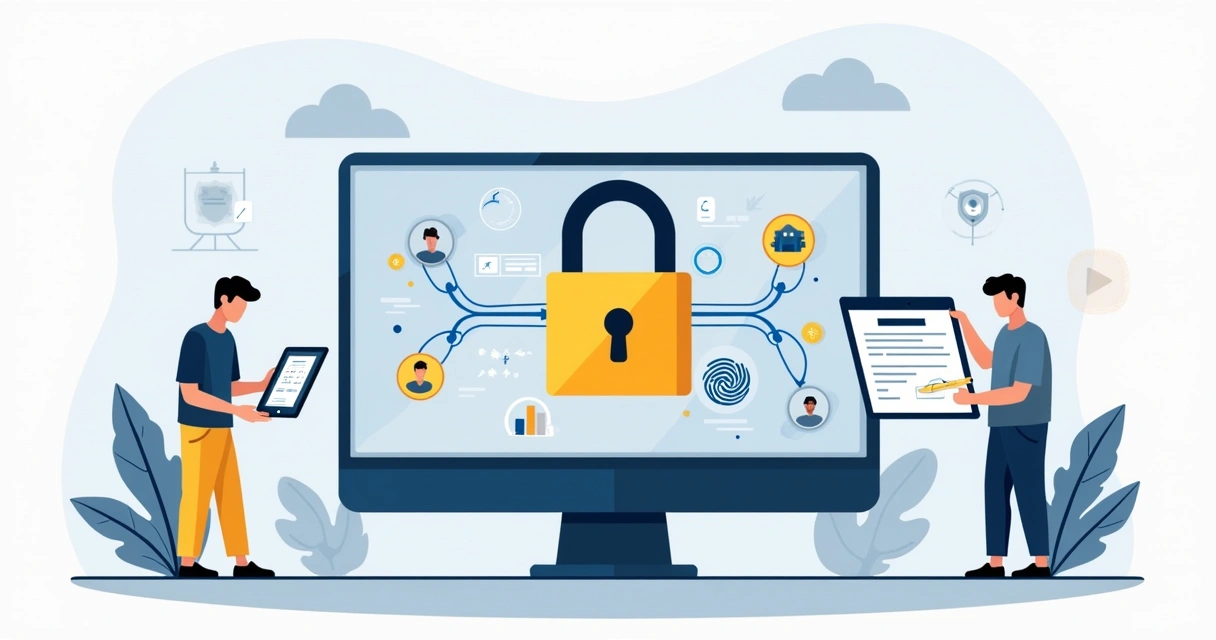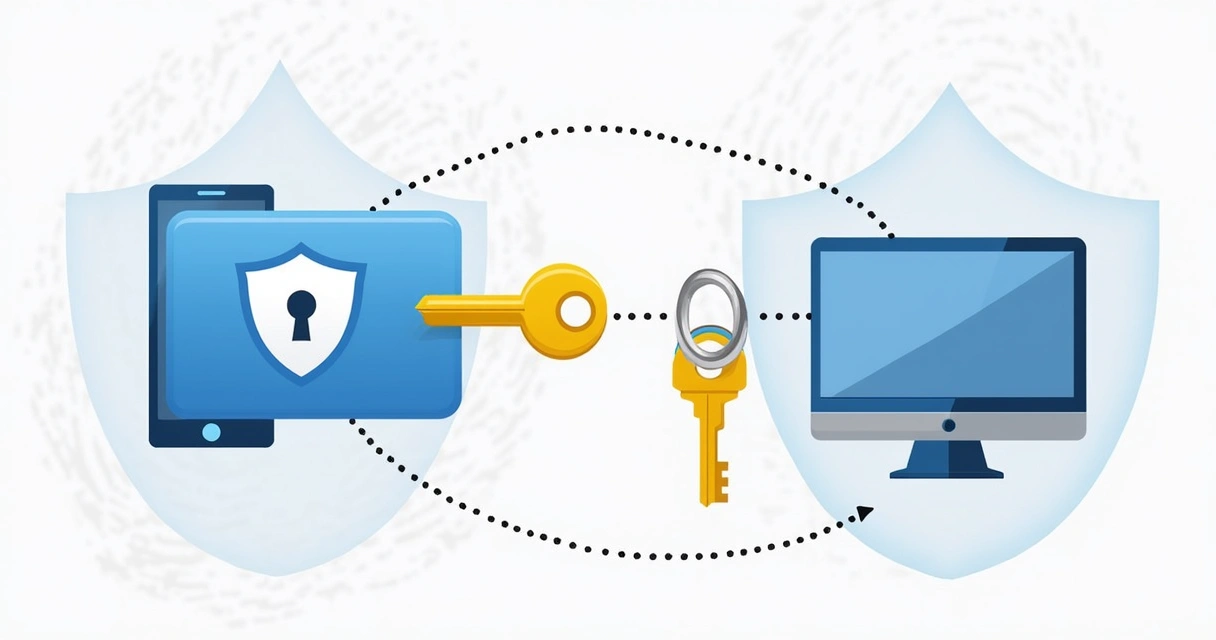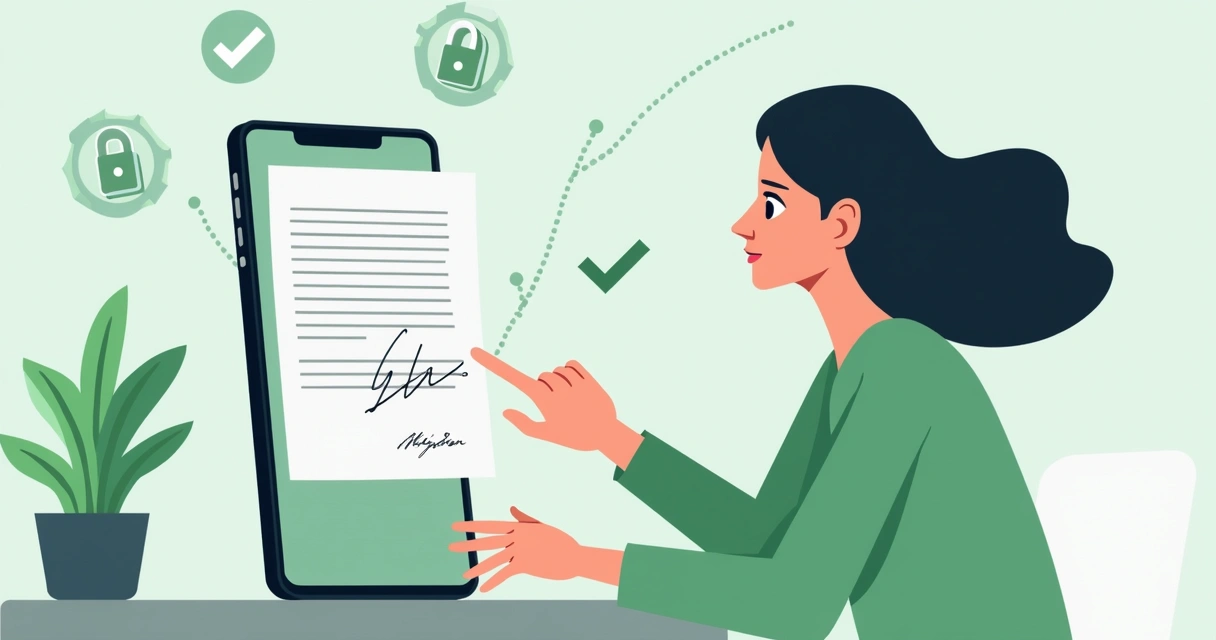E-signatures have changed how we sign and manage documents, but concerns about security never really go away. The good news? A new way to confirm identity, passkeys, is starting to change the game. As more companies, including CloudSign.ie, bring this technology to people and businesses, we should ask: what are passkeys, and how do they actually protect digital document signing better than traditional methods?
There's no denying it, passwords have grown painful. Reset links. Password leaks. Phishing scams. That familiar dread of making up yet another “secure” password, only to forget it weeks later. Now imagine skipping all that. Passkeys just might be the answer. They’re appearing everywhere, especially in e-signature platforms where safety and speed really matter.
Passwords: the weak link in digital signatures
For years, passwords guarded our online signatures and contracts. But let's be honest, they were never really up to the job. Even the strongest password, used everywhere, can fall into the wrong hands. Attackers don’t need to break in; they just need you to type your password on a fake site.
Phishing, data breaches, and reused logins create huge holes. Competing platforms may add multi-factor authentication, but users still need to juggle codes and apps that feel clunky or annoying. As e-signatures become more mainstream, the need for something truly safe and simple is obvious, and overdue.

What are passkeys and why do they matter?
So, what actually is a passkey? Unlike passwords, which are just secret words or phrases, passkeys use a new approach called public-key cryptography. This clever math generates two related keys, a public key and a private key. They always come as a pair and work together like puzzle pieces.
- The public key goes to the server or company (like CloudSign.ie) and isn't sensitive. It can be shared safely.
- The private key never leaves your device. It’s locked away and never exposed, even to the company providing the service.
Here’s why this matters: whenever a person wants to sign in or sign a document, their device uses the private key, tied to biometrics or a PIN, to prove identity. There’s nothing for an attacker to intercept. No password to steal, no code to copy.
No secret leaves your phone or laptop. Ever.
The birth and flow of a passkey
Let's break down how a passkey comes to life when you first set one up:
- Your computer or phone creates a unique key pair (public and private) for each service (so, CloudSign.ie gets its own pair).
- The public key is safely sent to CloudSign.ie’s servers. This key is only useful for verifying.
- The private key is stored deep inside your device’s security hardware or encrypted software storage. It’s locked down, never shared online or through email.
- When you come back later to sign a contract, your device uses your face, thumbprint, or a short PIN to unlock the private key and respond to the “sign-in request.”
- CloudSign.ie checks the response with the matching public key. If it fits, you’re in. If not, no dice.
What’s really neat is that this process doesn’t send your actual PIN, fingerprint, or any secret to the server. No more putting trust into companies or the cloud to “protect” your password.
How passkeys keep e-signatures safe
Now for the real question: how do passkeys make your electronic signatures safer? There are a bunch of ways, honestly. Each step leaves hackers with fewer options to break in.
- Phishing resistance: Even the craftiest fake login page can’t get your private passkey, since it lives only on your device. This totally sidesteps the classic trick of stealing your identity by tricking you to log in somewhere fake.
- Stolen public keys are harmless: If someone grabs a company’s copy of your public key, they can’t use it to pretend to be you. The private key is what matters, and it never left your phone or computer (passkeys are resistant to phishing).
- No big leaks possible: Password breaches leak millions of secrets; passkeys can’t be leaked from a server. Stealing a public key gets the attacker nothing, and there’s nothing useful saved online.
- Less guessing or cracking: Passwords can be guessed or brute-forced. Passkeys are long, random cryptographic keys that would take lifetimes to guess.
What does this mean for e-signatures?
Every time you access a document to sign, approve a new contract, or review a sensitive file, the passkey confirms you are truly you. Hackers targeting old password databases find nothing of use. Your private key stayed on your device. Your e-signature workflow with CloudSign.ie is guarded by the smartest lock, one nobody else has.
Usability: stronger and easier at the same time
It’s one thing for something to be safer. But honestly, if it’s awkward or complicated, people avoid using it. Passwords ended up that way, people pick “123456” out of frustration.
Passkeys fix that. They not only boost security; they make life easier. Here’s how:
- No password to remember: People just approve with their face, fingerprint, or a quick PIN. Done. (passkeys enhance user experience)
- Nothing to type, nothing to forget: No more complex password rules or resets.
- Super simple to set up: Most devices let you add a passkey to any supported service with just a few taps or clicks.
- Works on all your stuff: Save passkeys to your Google, Apple, or password manager account and use them across different devices.
- Quick for everyone: Whether you are a freelancer on the go, a business manager, or even on a shared device, passkeys are just as fast.
How passkeys really feel in daily use
Let’s say you get a new contract from a client via CloudSign.ie. You pop it open on your phone, hit “Sign”, and your device asks for your face or fingerprint. That’s it, you’re signed in, and ready to put your mark on the document. It feels a bit like magic. No odd symbols to type in. No password reset emails.
Just a glance, or a touch, and you're in.
Syncing and managing passkeys across devices
Gone are the days of setting up new passwords on every laptop and phone. A huge win for passkeys, especially in e-signature systems, is that your private keys can follow you safely, no matter how many devices you use.
- Cloud sync: Services like Google, Apple, and top password managers let your devices keep passkeys up-to-date, using strong encryption. Add a passkey on your laptop, and your phone can use it instantly (if you choose).
- Stay safe even on a lost phone: Most systems let you remove a passkey from remote devices if something goes missing. Your digital signature stays protected.
- Perfect for hybrid teams: If you sign documents on a tablet at home and a desktop at work, your passkey follows, so no awkward lockouts or delays.
This is part of what makes CloudSign.ie appealing to teams and freelancers. People can work from anywhere with the same strong level of safety, whether they’re at the office or halfway across the country.
Why passkeys make e-signature privacy stronger
Imagine signing a document but not telling anyone your secret. With passkeys, that’s basically the reality. There’s no shared password. Each time you sign or log in, your part stays on your device. No cloud-stored secrets, no company vaults.
This approach lines up beautifully with strong privacy rules, like GDPR. If no secrets get collected or stored, there’s nothing to leak, even if a server is compromised. If you want to learn more about the legal landscape for e-signatures in Ireland, see the in-depth look at electronic signature laws in Ireland.

Passkeys and the FIDO Alliance: a new standard emerges
You might wonder: how do so many devices and services agree on how passkeys work? That’s where the FIDO Alliance comes in. It’s a group of big tech names and security experts building the shared rules and design guidelines for passkeys. Because of their work, your passkeys will act the same way on your phone, laptop, or even when future tools appear.
There are more than 2 billion passkeys in use today, thanks in large part to FIDO’s standards (over 2 billion passkeys in use globally). That number grows every time another company, like CloudSign.ie, adds passkey support.
This shared approach means smoother experiences, fewer headaches, and more rapid protection across the internet. The FIDO design rules focus on making the whole thing easy, not just safe.
Passkeys today and tomorrow: replacing passwords bit by bit
Major tech platforms, as well as leading e-signature platforms, now support passkeys. Passwords and SMS codes are still around, but more people are discovering that passkeys are not only safer, but they fit life better.
CloudSign.ie’s own tools follow these global standards, making sure your documents are always protected by current best tech, as detailed in our simple guide to fast and secure electronic document signing. Many password managers also now store passkeys alongside logins, allowing a gentle, non-disruptive transition for users.
Passwords may not vanish overnight, but passkeys are shifting the balance toward a safer web.

How CloudSign.ie leads in passkey security for e-signatures
Sure, other services might offer some security features, but CloudSign.ie stands apart. Why? By integrating passkey support deeply into every stage of digital signing and contract management, CloudSign.ie gives users what others promise but rarely deliver: speed and certainty, with zero security compromise.
Even our most accessible plan, free forever for individuals, allows you to try passkey-powered, GDPR-compliant e-signatures without barriers. If you need a taste of other platforms, check out our thoughts on top electronic signature programs and why we think CloudSign.ie is a better choice.
Whether you are brand-new to e-signatures or searching for more advanced features, our guides such as the beginner’s guide to e-signatures or our summary of the best e-signature tools of 2025 will give you a taste of why switching makes sense.
Conclusion: the path to safer, hassle-free e-signatures starts now
There is no need to wait for the next password leak or worry about falling for a smart phishing scam. Passkeys are proving, each day, that digital signatures can be safer, and gentler on real users, than ever before. For businesses and freelancers in Ireland, the combination of cutting-edge cryptography and easy experience sets CloudSign.ie apart.
Why not experience the next stage of e-signature safety? Give CloudSign.ie a try and see how secure, user-first document signing truly works. You might even wonder why you ever put up with passwords at all.
Frequently asked questions
What are passkeys in e-signatures?
Passkeys in e-signatures are a new way to confirm a user’s identity without using traditional passwords. They rely on a pair of cryptographic keys: one public key stored by the e-signature provider, and one private key kept securely on your device. When you want to sign a document, your device uses your private key to prove who you are, often by asking for a biometric input (like a fingerprint or face scan) or a PIN. There is no password to enter, no secret transmitted, and no information saved by the company that could be stolen if breached.
How do passkeys improve e-signature security?
Passkeys boost security in e-signatures mainly by keeping the only sensitive secret, your private key, locked on your device and never sending it to the e-signature provider’s server. This setup makes common attacks like phishing, brute-force guessing, or password leaks nearly impossible. If an attacker tricks you with a fake login page or hacks a service, your private key remains protected. Only your physical access (your phone, your face or fingerprint, your PIN) can unlock the ability to sign. Even if public keys are stolen from a server, they are useless without the private key on your device.
Are passkeys safer than traditional passwords?
Yes, passkeys are generally safer than passwords for most people. Passwords can be guessed, phished, reused, or leaked in data breaches. Even complex passwords are only words or patterns at heart. Passkeys are based on cryptographic technology; their long, random strings are practically impossible to guess or force. Since your private key never leaves your device, attackers have no easy path, even if they compromise a server or trick you with fake websites.
Can I use passkeys on any device?
Most modern devices support passkeys: smartphones, laptops, tablets, and desktops from major brands usually offer ways to create and store passkeys. You can sync your passkeys between devices using services like Apple iCloud Keychain, Google Password Manager, or other secure password managers that support the feature. Even if you get a new device, restoring your passkeys is usually quick and secure. The only catch is that older hardware or software may not fully support it yet, but that gap is shrinking as technology updates continue.
Do passkeys make signing documents easier?
Definitely. Passkeys remove the hassle of remembering, typing, and resetting passwords. When you use a passkey to sign a digital document, typically all you do is approve with a face scan, fingerprint, or device PIN, and you’re ready to go. There’s nothing extra to type, no clumsy codes to juggle, and almost zero chance of being locked out by a forgotten password. This smooth process is one of the best reasons many users prefer passkeys, especially when dealing with frequent or time-sensitive digital contracts and signatures.
